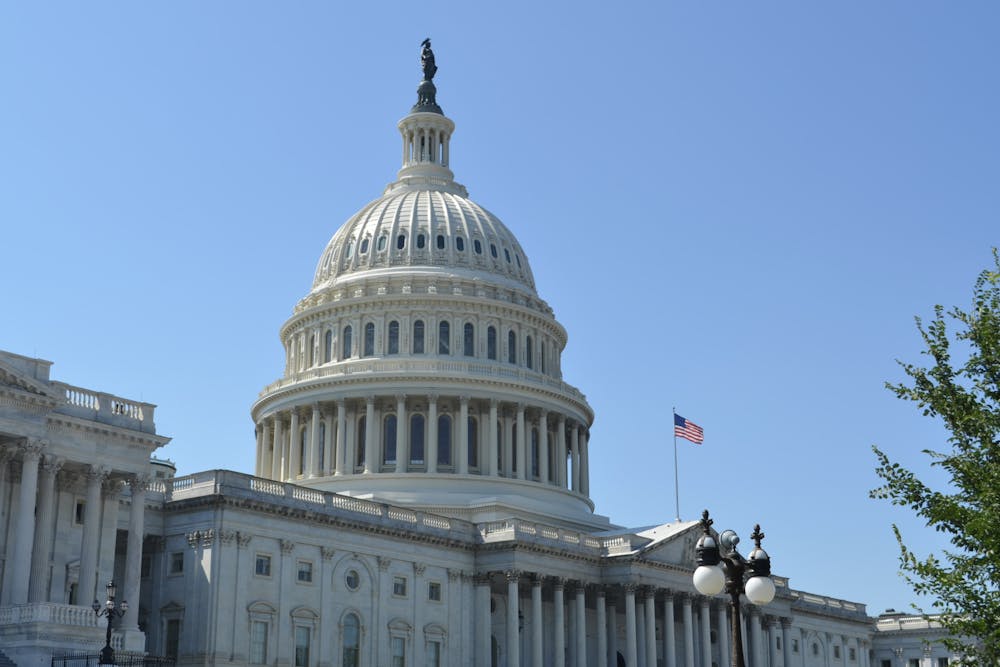The longest U.S. government shutdown in history ended on Nov. 12 after 43 days, leaving millions of Americans facing interruptions to federal programs and funding. Throughout October, the Supplemental Nutrition Assistance Program (SNAP), which offers cash cards to Americans at or below 130% of the poverty line, allowing them to purchase basic food items, continued on reduced funding; however, any extended shutdowns beyond 30 days, can pose difficulties in maintaining SNAP benefits for recipients. In Maryland, 668,000 individuals, including 259,000 children, are enrolled in SNAP.
On Oct. 31, 31 days into the shutdown, University administration sent out a community-wide email addressing the ongoing shutdown updates, outlining ongoing developments and anticipated effects. The email advised researchers and students that they may experience cancellations or delays in federal grant awards and scholarship payments. Regarding SNAP benefit changes, the University stated that administration will organize food banks to supplement the removal of support.
“Further, recognizing the needs of [the surrounding community] across the Hopkins footprint who rely [...] on federal programs like SNAP, the university and the health system are making donations through United Way to the Maryland Food Bank and the Capital Area Food Bank. Various university and health system offices are also organizing drives for food banks in our area,” the email stated.
Junior Kristy Leiva, in an email to The News-Letter, shared her experience working with the Hopkins Food Pantry amidst SNAP benefit removal. Leiva also shared how she was unable to apply for SNAP benefits herself.
“I work at the food pantry, so many of our shoppers have expressed their concerns with the removal and have asked for any other resources. It has [also] affected me as I am a first-generation, low-income student who was planning on applying for SNAP benefits,” Leiva wrote.
In an email to The News-Letter, a student going under the pseudonym “Anthony” shared how SNAP benefit removal did not affect him or anyone he knows; however, he felt that the University should have provided a better publicized, more robust response.
“I wasn’t aware the university made a broad response to the SNAP removal, but I think it would have been good if the school offered free meal swipes or meals through Char-Mar, as they may have extended access to the food pantry, but that resource isn’t well known I believe and hard to access in my opinion,” Anthony wrote.
Sophomore Conner Feng shared how he also was not familiar with the University’s responses, but he supported the University’s efforts.
“I do remember seeing something about the university offering some additional financial support towards feeding staff members and affiliates who are affected by these cuts. I definitely think that's a great idea and in these times they need all the support we can offer,” Feng wrote.
On Nov. 5, Governor Wes Moore declared a State of Emergency and announced $10 million in emergency funding to Maryland food assistance partners to address SNAP benefit removals. According to Moore’s office, many food providers were already facing layoffs, staffing shortages and reduced funding; the emergency allocation was intended to stabilize distribution efforts amid rising need.
In response to the government response, while he appreciated Moore’s initiative, Anthony wrote how the prolonged shutdown diminished his confidence in federal leadership.
“The extended shutdown has been disappointing as it seems that the government isn’t caring about those who are truly suffering,” he wrote. “I greatly appreciate Gov. Wes Moore’s response to still fund SNAP for MD residents, as he truly prioritized health and having access to food is crucial. I just wish he did it earlier, as some people had to go weeks without their SNAP benefits and continue to live in uncertainty.”
Feng added that the shutdown proved unnecessary, reflecting deeper political dysfunction.
“I think the government shutdown was mostly just politics,” he wrote. “I don't think it was completely necessary… At the end of the day, I think it's mostly just sad and shows the state of American politics and the inability to compromise.”
Since Nov. 18, Maryland has been resuming issuing 100% of federal SNAP benefits to all former recipients. Residents who usually receive benefits before the 18th will receive at least half of their benefits on their regular day, with the remainder distributed on the 18th. According to the Maryland Department of Human Services, $46,941,257 in benefits have been redistributed once funding resumed.





